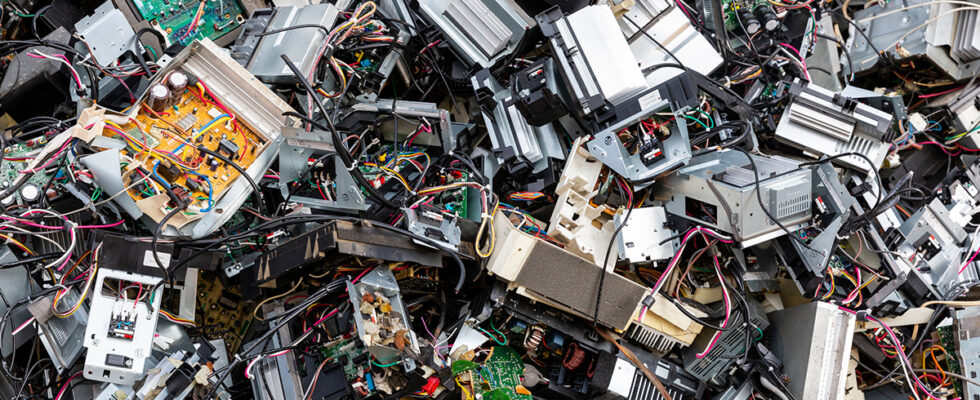According to the latest report from the International Telecommunications Union, the production of electronic waste is increasing 5 times too fast for us to be able to recycle it all. And it’s not going to get better any time soon.

With hundreds of new models of smartphonesofcomputersof connected watchesofsmart speakers and others to replace the old ones, produce what we call waste electrical and electronic equipment (WEEE) is inevitable. How much exactly? Difficult to say as the calculation methods differ from one organization to another. One thing is certain however: there are more and more more.
Far from the 9 billion tonnes of WEEE advanced by the Waste Electrical and Electronic Equipment Forum last year, the recent report of theInternational Telecommunications Union (ITU) remains no less alarming. The institution attached to United Nations Talk about 62 million tonnes of electronic waste in 2022. This is almost 10 more than in 2019. The ITU especially emphasizes that their growth is 5 times too fast for our recycling capacities to keep up.
Electronic waste production is exploding, recycling can no longer keep up
Of these 62 million tonnes, only 22.3% could be recycled. A figure to be qualified insofar as the ITU only takes into account waste officially recorded as “collected and recycled in an environmentally friendly way“. The real share is therefore surely higher, but that would not be enough. The Union considers WEEE production will increase by 2.6 million tonnes per year to reach 82 million tonnes in 2030.
Read also – The end of Windows 10 will cause a real ecological disaster
In addition to theenvironmental impactthe report highlights the financial loss generated by electronic waste. It amounts to a little more than 34 billion euros in 2022. The sum is calculated by subtracting the profits made through recycling from the costs inherent to the latter. Unfortunately, there is no miracle solution other than raising awareness among governments for better overall management of WEEE. The impact of the rise of renewable energies should not be neglected either. According to the ITU, waste resulting from production of photovoltaic panels should move from 0.6 million tonnes in 2022 to 2.4 million tonnes in 2030.
